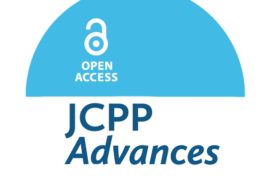During these exceptional times where seeing our families isn’t a possibility for everyone, the 15th of May marks the International Day of Families. As an organisation, we’d like to point you to some research on the importance of attachment and positive relationships, and on the ability of families to serve as a mental health intervention, as well as to some timely tips for practitioners to help parents manage their child’s challenging behaviour during homeschooling and the lockdown.
Blog
Helping parents manage challenging behaviour during the COVID19 lockdown – Some pointers for practitioners
Freeview
Tochukwu Nweze explains his paper in the JCPP in this short video abstract
https://www.acamh.org/freeview/working-for-the-future-parentally-deprived-nigerian-children-have-enhanced-working-memory-ability-tochukwu-nweze-video-abstract/
Podcasts
Dr Karen Treisman discusses using a range of creative therapeutic approaches with families.
In Conversation… Dr. Karen Treisman
JCPP
Exploring the promise of assessing dynamic characteristics of the family for predicting adolescent risk outcomes
Poor family functioning mediates the link between childhood adversity and adolescent nonsuicidal self‐injury
CAMH
Family functioning moderates the impact of depression treatment on adolescents’ suicidal ideations
The direct and indirect effect of attachment insecurity and negative parental behavior on anxiety in clinically anxious children: it’s down to dad
Research digests
Two research digests, supporting the above papers, ‘Poor family functioning mediates the link between childhood adversity and adolescent nonsuicidal self‐injury’ and ‘The direct and indirect effect of attachment insecurity and negative parental behaviour on anxiety in clinically anxious children: it’s down to dad’.
Continued family dysfunction accounts for the association between childhood adversity and adolescent self-harm
Insecure paternal attachment contributes to childhood anxiety


